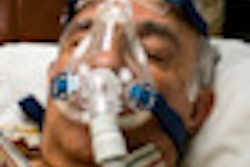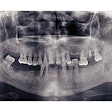Sleep apnea is associated with an increased risk of cancer mortality, according to a new study conducted by researchers from the University of Wisconsin.
Findings from the study, the first human study to link apnea with a higher rate of cancer mortality, were presented May 20 at the American Thoracic Society 2012 International Conference in San Francisco.
The study showed a nearly five times higher incidence of cancer deaths in patients with severe sleep apnea compared with those without the disorder, a result that echoes previous findings in animal studies. However, researchers are a long way from proving that sleep apnea causes cancer or contributes to its growth, noted lead author Javier Nieto, PhD, chair of the department of population health sciences at the university.
The Wisconsin researchers examined 22-year mortality data on 1,522 subjects from the Wisconsin Sleep Cohort, a longitudinal, community-based epidemiology study of sleep apnea and other sleep problems that began in 1989. The participants, Wisconsin state employees chosen at random, undergo overnight sleep studies that include polysomnography and many other tests at four-year intervals.
After adjusting for age, sex, body mass index, and smoking, the researchers found that both all-cause and cancer mortality were associated with the presence and severity of sleep apnea in a dose-response fashion. People with severe sleep-disordered breathing died of cancer at a rate 4.8 times higher than people with no sleep breathing problems.
These associations were similar after excluding the 126 subjects who had used continuous positive airway pressure and were stronger among nonobese subjects than obese subjects.



















